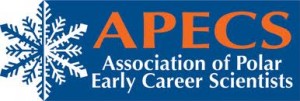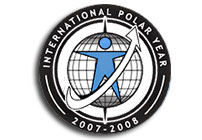Working title: “More than ‘Nature’: Research on Infrastructure and Settlements in the North”
The Working Group Arctic and Subarctic in Vienna invites scholars to contribute to an edited volume to be published in the fall of 2020. While the Arctic seems inevitably linked to pristine wilderness, climate change, and endangered animal species in popular imagination, the presence of villages, towns and cities, and the infrastructures they rely on, have largely been overlooked and underrepresented. One could argue that, historically, the extraction of resources and their transportation from the North have been prime reasons for the development of infrastructure and the establishment of settlements in the Arctic and Subarctic. In addition to purely economic motivations, ideological, military, political and strategic considerations have played and continue to play important roles.
The aim of this book is to showcase contemporary research about Northern towns and Arctic and Subarctic infrastructures, as well as related aspects and phenomena, mainly from a social science perspective.
The themes and topics of the contributions include but are not limited to:
• Arctic infrastructure
• Living conditions in the Arctic
• Research methods
• Urban-rural relations
• Center-periphery relations
• City life
• Urbanity
We invite contributions from the following disciplines, among others:
• Urban Studies
• Social and Cultural Anthropology
• History
• Northern Studies
• Geography
• Sociology
Interested scholars are encouraged to send an abstract of 200–300 words to the editors by May 15, 2019. Invitations to contribute will be made by June 30, 2019. The deadline for the submission of the article will be October 30, 2019. Peer-review feedback will be sent by February 15, 2020. Submission of the revised articles is due May 15, 2020.
Editors: Working Group Arctic and Subarctic (Doris Friedrich, Markus Hirnsperger, Stefan Bauer)
E-mail: book@sub-arctic.ac.at, Website: www.sub-arctic.ac.at/book




 The International Council for Science (ICSU) and the World Meteorological Organisation (WMO) have devoted the period from 1st March 2007 until 1st March 2009 to the polar regions of the world. Arctic and Antarctic are in focus of a comprehensive scientific programme, which even stretches over two years this time – to give scientists the opportunity to conduct research in all seasons of the year on the northern and southern hemisphere.
The International Council for Science (ICSU) and the World Meteorological Organisation (WMO) have devoted the period from 1st March 2007 until 1st March 2009 to the polar regions of the world. Arctic and Antarctic are in focus of a comprehensive scientific programme, which even stretches over two years this time – to give scientists the opportunity to conduct research in all seasons of the year on the northern and southern hemisphere.